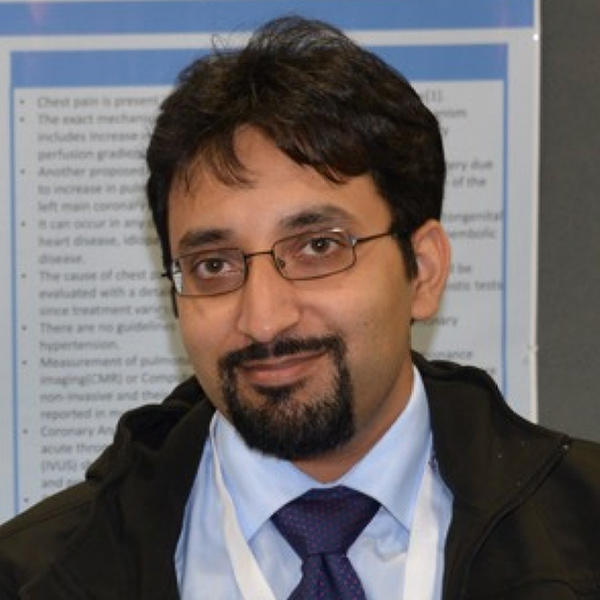Should Cardiologists Pursue Formal Degree Programs to Advance Their Careers?

In modern medicine, we are frequently challenged with situations that we are ill-prepared to handle. This often stems from lack of essential knowledge that is beyond the confines of traditional education received during medical school, residency or fellowship.
During my training, I had the opportunity to interact with many physicians who had very successful careers. Some had acquired formal training with an additional degree to achieve their career goals, while majority had just acquired these skills through their mentors or just "on-the-job learning."
I found myself wondering: are formal degree programs necessary for career advancement and success?
Matching into an internal medicine residency program in U.S. was one of the happiest days of my life.

In addition to clinical training, I was fascinated by the opportunity to do research.
However, like many other international medical graduates, I had no background in research. After facing some failures in my early research projects, I realized that I did not possess the basic skills required to be a successful researcher, and if I wanted to excel in clinical research, I needed to get formal training.
My mentors advised me to enroll in a Master of Science in Clinical and Translational Research (MSCTR) program.
In this article, I will describe my personal experience and a decision tree that a can provide insight to other cardiologists thinking about obtaining an additional degree to advance their career.
Decision Making Steps

LongTerm Career Goals
The first step is to know your long-term career goals. The effort in terms of time and money it takes to complete a degree is only justified if you will spend your entire career benefitting from it. If the goal of acquiring an additional degree is just to improve the resume for a competitive fellowship or job, the effort may not be worth the prize.

Pearl 1: Think long term.

Choice of Degree Program
The long-term career goals should dictate the choice of the degree. Suitable options for careers include the Master in Public Health program for public health positions, Master in Business Administration program for entrepreneurs, Master in Health Administration program for administrative and management positions, Master in Higher Education program for educators and MSCTR program for physician-scientists.
I found that the MSCTR program was geared toward physicians and the coursework was mindful that majority of students were busy clinicians. The core curriculum provided a great foundation for basic skills like clinical and translational research design, quantitative and qualitative research methodology, scientific writing, research ethics, research management, biostatistics, epidemiology and statistical software.
The coursework consisted of lectures and assignments which provided hands-on problem solving. There was time available for electives and an excellent grant writing course, as well. The degree required completion of a thesis which helped me to apply the skills I learned in the core curriculum. Some MSCTR programs do not require completion of a thesis.

Pearl 2: Find the program that fits your long-term goals.

Time Commitment
Like any degree, MSCTR required a significant time commitment to attend the classes and to prepare for class quizzes and exams. For trainees, managing an additional degree with the 80-hour work week can prove to be a significant challenge.
Effective time management, productivity and hard work prove to be essential and scheduling conflicts with clinical responsibilities prove be very challenging. Some courses offer partial or complete online curriculum that provides some flexibility in terms of scheduling.
The support from your program director or department chair is critical. I found that with support of my program director (e.g. protected time), co-residents and co-fellows (e.g. switching calls on class days), and clinic managers (e.g. scheduling patients little early or late to allow class attendance), I attended most of the classes easily.
The MSCTR faculty was also very considerate about class absences due to scheduling conflicts. An important time limitation was not having enough time for family, hobbies and friends (e.g. weekends were usually spent working on finishing class assignments).
However, if you are sort of person who is good at time management, it is still possible to do this. If you are not good at time management, you should probably delay this until you finish training and have more control over your schedule.

Pearl 3: Discuss the idea with your program director or department chair and learn effective time management.

Financial Commitment
Most additional degree programs are quite expensive, posing to be a significant challenge for physicians in training. Some programs offer scholarships and waivers, but international medical graduates on Visa may not be eligible for them.

Pearl 4: Find out about financial waivers and scholarships.

Net Benefit
An important question to ask before committing to an additional degree is, "What is the gap between skills I possess now and the skills I need to achieve my long-term goals?"
If the gap is significant and it cannot be bridged with experience, help from mentor, online free resources, self-learning and collaborating, only then consider an additional degree.

Pearl 5: Calculate the "net yield" of an additional degree in your professional career.


